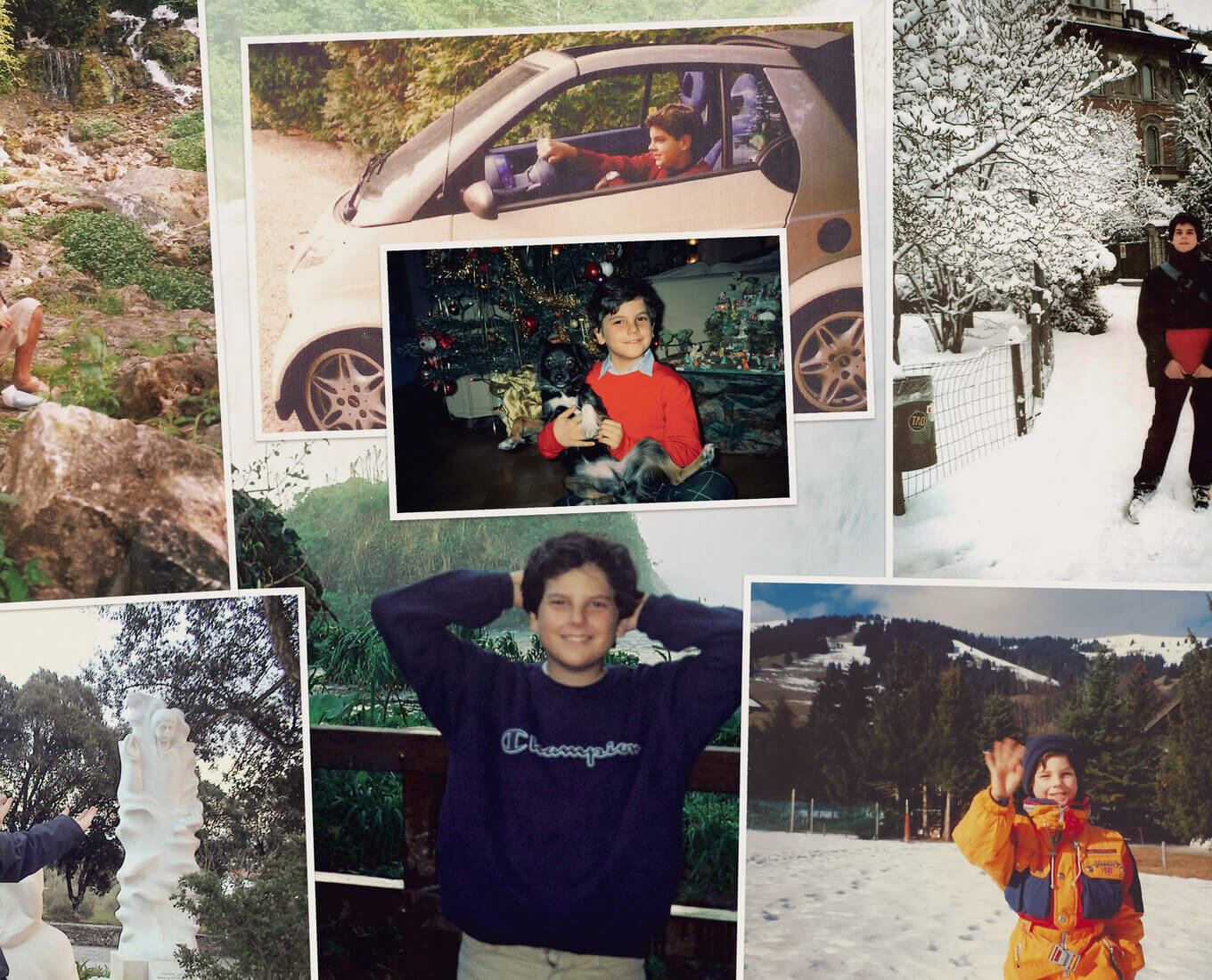Editor's note: Every fall, high school seniors applying for college write a personal essay to accompany their applications, as a way to tell admission officers a little about themselves beyond grades, test scores and extracurricular activities. “As application readers, it’s such a treat to learn about students’ interests and experiences through the essay. It’s typically the final thing we read and is often our favorite part of the file!” says Lynn Verrecchia ’01, director of admission. Holy Cross receives thousands of such essays each year; here’s one of several memorable essays received from members of the class of 2028, a year in which just 17% of applicants were offered admission.
It took me 17 years to recognize the value of my family’s car, The Flanvan.
My parents brought their first baby home in the fall of 1994, and by the same time two years later, the Flanagans were the typical nuclear family: two kids, a split-level house and a used Volvo station wagon. However, every new baby made our family less typical.
My parents were delighted to bring me, a healthy baby boy, home, as the youngest of their seven children. However, another baby unfortunately left no room in their eight-passenger minivan.
None of the SUVs my parents saw around town were suitable for a family of our size, leaving them with one option: a 12-passenger white Chevy Express, equipped with enough room to fit anything and everything they’d need for seven children.
Soon enough, the Flanvan became famous in our small town. Among the minivans with movie screens, it didn’t fit the mold of what a suburban family drives. There was some novelty about it, a novelty that I loved, telling my classmates how “My dad drives the biggest car in town!” before he’d pick me up from a birthday party or sports practice, where the Flanvan frequently served as the carpool vehicle.
The golden age of the Flanvan ended as I grew into a teenager, who became conscious of my family’s financial inferiority to my wealthy friends. I grew sour with each snicker about the old, clunky cars that my family had, and over time that feeling festered into resentment toward my parents and the lack of riches they could provide for us.
There wasn’t much to love: the rust spots, the tape on the back windshield, the door that didn’t open from the inside. The broken radio, which especially bothered me. Mostly, I couldn’t stand how everyone was so sentimental about it. I knew my parents loved their van, but to me it was for reasons unknown.
My embarrassment blinded me, so much so that I couldn’t see the hurt my parents felt when I asked to be dropped off around the corner at school — because the alternative, having everybody see this representation of my family’s wealth and value, was unbearable.
Over the years, my parents continued to fix all of its many problems, nursing it back to life every time like one of their own children. I couldn’t understand why.
Now, with only two children living at home, the van sat parked in the driveway: Until this past summer, when its engine roared for the first time in what seemed to be forever, to take my family and I up to Maine for our annual vacation. I worried that it wouldn’t make it the whole way, and in my typical fashion, suggested that we take our smaller Chevy Suburban. My parents insisted.
Like usual, my father and I packed the car until the late hours of the night before we left. I remembered how easily a week’s worth of essentials fit, with enough room for everyone, much older now, and our two dogs, who comfortably laid between the rows. It was refreshing to be back in my usual spot, turning back to talk to my sisters while still being close to my mom. I didn’t even mind the broken radio, since the whole car was filled with laughter.
It was then that I finally realized why my parents loved their van so much: It brought us all together. Being with my family in the van brought me back to our trips to the grocery store after church; to getting dropped off at school on rainy mornings; to when I didn’t care what other people thought of my family or myself. I allowed inanimate objects to define my family’s value for too many years, but in those moments in the Flanvan, I found that the only thing that mattered was the time we spent together.
Ronan Flanagan ’28 is a first-year student from New Providence, New Jersey.

